Episode 6: Travel Takeoff: Aviation Trends
In this episode, we're joined by Tim McMullen, a true veteran in aviation tech, to discuss the latest aviation technology trends from the latest industry conferences and the future of aviation. From contactless travel and predictive maintenance to hyper-personalized passenger experiences, Tim shares key aviation industry shifts and his hot take on what airlines might be getting wrong. Listen in for a thoughtful discussion!
Key Takeaways
✓ Historical Context: In the past, customer-facing aviation technology was limited, relying heavily on manual processes with minimal passenger interaction. Travelers had to plan trips independently, with little technological assistance.
✓ Current Landscape: The latest trend in aviation software solutions is the integration of conversational AI for trip planning, providing passengers with personalized flight options tailored to their preferences.
✓ Anticipated Trends: The future of aviation technology is focused on enhancing customer experiences through advanced AI and personalized trip planning tools. With global passenger traffic projected to double by 2040, the industry is prioritizing scalable software solutions and innovative passenger management systems.
To learn more, please visit this page.
Transcript
Anni Tabagua: Welcome back to BizTech Forward, a podcast where we chat about technology and business with some of the brightest minds at DataArt. I'm Anni from DataArt’s media relations team, and I'm here to talk with these brightest minds to pick their brains, so to speak. Today, we are taking off into the world of aviation, aviation, and technology.
Joining us is Tim McMullen, Head of Business Development for Aviation and Travel Technology at DataArt. Hi, Tim. So good to have you here.
Tim McMullen: Hi, Anni. It's great to be here today.
Anni Tabagua: Tim brings over 25 years of experience providing software and services to airlines worldwide, from startups to global carriers. Tim has also recently attended several airline tech events, so he is here to give us the scoop on current trends and what's next for aviation technology. Again, Tim, welcome to the show. So happy you're here.
Tim McMullen: Thank you so much.
Anni Tabagua: In this episode, we'll briefly cover the past, present, and future of aviation technology. Plus, Tim might share an unpopular opinion or two at the end, so stay tuned. But let's start with the first. Tim, let's look back a little bit. With all your experience, you must have seen aviation technology evolve quite a bit. So how was it back in the day, say 5 to 10 years ago?
Tim McMullen: Yeah, that's a great question. I might even go back a little bit earlier. One of my first jobs in aviation technology was as a software product manager. Back then, I would go out to customer sites to do some training, but in order to get them the updated software, we would literally put it on 3.5-inch floppy drives, put it in a FedEx envelope, and mail it to them.
When I went on-site to do training, I would literally have to take the install disks and go to every computer in the training room to install it because this application wasn't on the network; it had to be locally installed. Some of the files could be shared on a network.
But back then, there were local installs, and it's a bit insane to think about how we did that back then. Even at that point in my career, I remember having conversations with some customers where the conversation was not about which program was best but rather about doing it manually, which might be faster than using your software program. And when you think about that kind of conversation today, it's almost unimaginable, right? Because technology is part of our lives. There was even one time when this was a true story. I was talking to a customer, and we made a little side bet as a joke.
He said, "Tim, I don't need to use your software. I can build my flight schedule faster." And I said, "There's no way. Of course, you can't." So we made a little side bet for fun, and the stakes were high. It was, "Hey, if I beat you, if I build your flight schedule faster in my software, you have to use it and vice versa." If he were to build a schedule faster manually, then I would go away. I was pretty confident. So we did that. But guess who won?
Anni Tabagua: I bet it was you.
Tim McMullen: It was me. Yeah. Software prevailed. That was a fun little story, a fun time.
Anni Tabagua: What happened to that customer, I wonder? Did they still use the software?
Tim McMullen: Hopefully, they started using it, and I think it was a bit of a transition because you're changing how you're doing business, but they still use it today. So, it was a success story.
Anni Tabagua: Yeah. And it's a fun success story. Right? Okay. Of course, Tim, it would be very obvious to say that technology moved from being somewhere in the background to being the hero of the show, not just in the airline business but overall. But still, would you share maybe some memorable recent milestones in aviation?
Tim McMullen: Sure. Fast forwarding a little bit from that, one of the things we did at the same company is that we decided to reimagine and rebuild our flight scheduling suite of products with a new interface, new user interface, and new workflow. We were integrating disparate systems with a new technology stack. It was a really fun project.
Of course, there were challenges along the way. We learned some things and did some customer installs, and, as you can imagine, there were a few challenges. I didn't even know it at the time, but we installed an MVP. I didn't even know what an MVP was, but we installed the minimum viable product, and we kept innovating and improving that.
And it became a very successful project overall. But I spent a lot of time going to different airlines around the world, doing installs, and training them. I really learned a lot about the software development lifecycle and how to work with customers and development teams during that process.
It really gave me an appreciation of how software works, how you build it, and how you make it come alive. I still talk to many of my coworkers and friends who were customers. So, it was definitely a great time, I guess, in my career, innovating and working in software.
Anni Tabagua: Right. And that's a nice little bridge to today because I'm very curious to hear what's happening right now so that we don't spend ages in the past. I want to know what's going on right now. Also, I know you went to loads of aviation and technology events, like last month. So, I think you attended the World Aviation Festival, the Future Travel Experience conference, and other events. I want to hear the gist, kind of. So, what was everybody talking about? What stood out to you?
Tim McMullen: Yeah, there were some really interesting things at these conferences. And there's even another one I'm attending next week. When we think about innovation, innovation comes in different forms. So, during the Future Travel Experience, we had the opportunity to visit Jet Zero. They're building a brand-new aircraft if you're unfamiliar with them. It's a blended-wing aircraft, and it's said to reduce fuel efficiency by 50% because of the design of it. The customer experience will completely change because the interior layout differs from any plane you've seen today. So, you could certainly go to their website and look at that.
But that is a big innovation because it's a completely different type of airplane. The first flight is supposed to launch in a couple of years with the US Air Force as a tanker. Another innovation is connectivity. So, it seems that Starlink is becoming a standard for certain airlines. Qatar just recently announced that they will be debuting Starlink on their flights. JSX Airlines is an airline based in Dallas, Texas, and they actually have Starlink in their passenger terminals on their aircraft. So, you could imagine when you enter their building, you're automatically connected to Starlink while you're in their building, and you stay connected while you board the aircraft, fly, and arrive. So, really, from end to end, you're connected, right? So that's definitely a pretty neat innovation.
Other innovations are Envoy, which is a regional carrier for American Airlines. They're implementing autonomous wheelchairs to bring passengers to their gates, and they don't have to wait for a person to push the wheelchair. It's more efficient. Right? So that's launching as well. Just a lot of different technologies that are out there. Biometrics and digital identity are also big because as we go through airports, I remember coming to an immigration line and sometimes waiting, you know, 2 or 3 hours while they cleared people manually one by one. And when you're on a large widebody aircraft, there could be a few hundred people. So nowadays, you go through it, and sometimes it's just minutes. Right? And I think it's pretty remarkable how that has changed.
Anni Tabagua: Oh, that's all great. I want to spend a little bit more time here in technology. I assume we'll have to talk about AI quite a bit right now, but was there any standout tech innovation talk you heard that you could share with us?
Tim McMullen: Yeah, I think you're right. I don't think I have a conversation today with a CIO or even a business leader at an airline without AI coming up, right? So chatbots seemed when generative AI was sort of first, and GPT first launched on the market recently, it was a big change. Many airlines and companies initially ran to that to solve chatbots as a customer service tool. Right? So, some airlines have done that quite well. There were probably hiccups along the way. So, many airlines or companies have again probably adopted a crawl, walk, run strategy. Some are crawling, some are walking, and some are running. So, it just depends on their maturity level. But the data underlying your chatbot certainly matters. And those are a lot of discussions we have today.
Some other AI-related ones, this is an interesting one. In December of 2022, Southwest Airlines was impacted by a winter storm called Winter Storm Elliot.
In the United States, many airlines suffered from that. Southwest seemed to be hit a bit, probably harder than the others, for various reasons. But they ended up creating, using AI, and building a tool they call LAYD, the Leading Indicator Alert Tool. It really looks at a lot of data, a lot of past flight performance, to proactively address issues in the operation.
They've launched that, and they seem to be getting good results and improvements in their operations from it. Another airline that I heard at one of these shows was Air Canada. And so, they seem to be, I would say, all in on AI. They've really adopted it.
And they didn't do it overnight. They started with a couple of different areas. Revenue management and cargo work were two areas where they really started their process. But they did recently hire, in September of 2020, a Chief Digital Officer to really manage their data there. In this program, they have looked at governance.
They've looked at ethics around it, so they've really taken a careful look at that. But they are like I said, I feel they're all in, and not just I feel. They've really said they're kind of all in on AI and using it in a lot of different areas of the company to really improve customer experience and operations.
They use the data to work with airports. So, when you think of the airline environment, no airline does it alone. Airlines work with a lot of providers and vendors and what have you. One of the ways to help improve operations is to share data with providers in real-time through AI.
The way they've designed their AI model enables that. So, it's pretty exciting to watch, right?
Anni Tabagua: It sounds like a lot of it is about making operations smoother and more reliable for the customer. And I myself, like, what do I know about airline technology? I think of myself just as a customer. All I think about is, is my bag going to fit under the seat in front of me? That's my level, you know? But still, since I'm a customer, I wonder what trends you are seeing around customer-facing tech?
Tim McMullen: Yeah, that's a great point. Right? Operations is certainly a big area. But yeah, a lot of passengers—I'm sure they're not in the airline industry like I am—and probably a lot of people that I talk to in my circle—airlines are doing a lot of interesting things with AI.
Alaska Airlines recently unveiled an air travel agent. The idea is that you'd be able to speak to a tool they've built, and AI is the underpinning of that. You would say things like, "I'd like to go to a city that's famous for street food," or "maybe I want to go to a city that has great hiking."
Then, in the background, they would look at the different flight options and the cities that they fly to that match those criteria and give you an answer. So, it's a pretty exciting way to instead of, I'll say, the old days, right, you would just go to a website and put in your departure city and arrival city, and you had to do the legwork yourself to figure out your trip plan in some cases.
Right. So, there are other ways to do that today that airlines are doing. It wouldn't be fair to say that the only thing you can do is book your travel. You can do a lot more on your online websites. But what Alaska has done is really take it to another step with AI to invest in a conversational way to make a booking.
Anni Tabagua: Right? Tim, I struggle with two thoughts at the same time. One is, "Oh my God, that's so cool." The other is, "Is it all making us lazier?" What do you think?
Tim McMullen: YWell, is it lazy, or are we being more efficient? Because now we save some time, and now we can go on and do other things that we get pleasure from. Maybe if we like hiking, right? Maybe I want to book a hiking trip, but I may hike regularly at home. So now I have some time to go do that.
So, I look at the efficiency side of it, the improvements. I may be eternally optimistic, but I try to look at the positive side of whatever gets implemented.
Anni Tabagua: Oh yeah. There you go. Anything else customer-specific that stood out to you, Tim?
Tim McMullen: Yeah, there was an interesting contest, I'll say, that they have at the World Aviation Festival, and it's called the Battle of the Airline Apps, and they've had it for a few years. They look at different things like customer experience, passenger information, and disruptions. As you said, right? As a traveler and passenger, you may not be aware of many things that go on behind the scenes when disruptions happen.
Airlines sometimes face challenges like this. As a passenger, you want to know when I'm going to get there if my flight is delayed or canceled and I need to be rebooked on another flight. You just want some basic information. You probably don't really care how it's done.
Some of these airline apps are really changing that because they provide more information. So, this year, the three finalists were Air India, Emirates, and Lufthansa. I watched the battle, and they were all very interesting. Each had a different perspective and a different pitch, shall we say.
But the judges—they have a good judging panel —— don't just watch the pitch; they actually spend some time on the app before the contest, understand what's there, and ask really intelligent questions. At the end of this year, Lufthansa came out as the winner. So, you know, congratulations to them. It was one to watch.
Anni Tabagua: Oh, that's a really cool example. So global.
Tim McMullen: Yeah, that's exactly right. The World Aviation Fest is a great event to network and learn about trends around the world.
Anni Tabagua: Thank you for sharing that with us. I didn't even go, but now I feel like I know a lot. Now, Tim, I really want you to look into your crystal ball if you have one. If you don't, just imagine that, you know? So, where do you think aviation technology is going? I want to ask in the next five years, but at least next year.
Tim McMullen: Yeah, that's a good question. I wish I had a crystal ball. Unfortunately, I don't, but what I can share is that let's talk about the airline industry as a whole. There are different reports out there that talk about how much the airline industry will grow. So, IATA, the International Air Transport Association, estimates that passenger traffic around the world, globally, will grow from 4 billion passengers in 2024 to 8 billion in 2040.
In only 16 years, it will double, but massively, adding 4 billion more trips and people around the world. This is interesting because it will have a different impact on different markets. The United States is going to more than double. I think India is projected to grow by five times. China will double. So, there are different pockets where traffic will grow.
And, of course, that will impact different airlines differently. But to answer your question, think about what that means for technology. Maybe I'll use a bit of a cliche or a saying. The old saying is when is the best time to plant a tree? And the answer is yesterday. When is the second-best time to plant a tree? That's today.
So, I think about technology like that. When we think about a crawl, walk, run strategy, every airline and company is better served if they start working through some experimentation and trying to test different things. But the earlier you start, you're going to learn along the way and experiment. That will enable you to come up with new ideas to grow. Think about the Alaska AI model; they probably didn't come up with that overnight. The battle of the airline apps is that they probably have great, customer-facing, operation, and digital teams that all pitch in and talk about what is possible. So, while I don't know how to predict the future, I think we all have to iterate and work through different ideas, and some good ideas that none of us have a crystal ball for will start appearing in the next or the next several years.
Anni Tabagua: Right. And do you think sustainability will also be in focus for the next year, even more so than it is now?
Tim McMullen: Yeah. Good question. Sustainability is part of the conversation at all these events and worldwide events for a couple of reasons. One of them is that IATA does have a mandate for airlines to be carbon neutral by 2040. So, 2040, again, it's not that far away. And if you think of the airline fleet, how many airplanes are out there, and what they have to do to become carbon neutral, that's a lot of work to be done. But airlines are working towards that. Not to give too many examples on Alaska Airlines, but this is recent, so I'll do that. But last year, in 2023, Alaska Airlines tested a program for sustainable aviation fuel, supporting over 500,000 gallons of SAF.
If I'm not mistaken, they put that on pause for a little bit. But then, just in November of 2024, they relaunched the program. So, today, passengers can buy SAF credits online and earn elite qualifying miles, which is a nice way to earn frequent flier miles. So, it's a way for passengers to participate in addressing the climate problem that's out there.
Right, and work towards that in a meaningful way. That's an example of how SAF and the climate affect how airlines affect the climate and how we can work together with that team.
Anni Tabagua: And you personally, is there anything specific you're following right now in the news, or is there some specific app that you are excited to try out in the near future? Something that is on the horizon that you, Tim, are following?
Tim McMullen: You know, I don't know if there's one specific app. When I travel, my wife is probably tired of traveling with me because I look at all these different apps as I travel, right? TSA has an app, the airport that I normally fly out of, my airline, and my hotel, everybody has an app. And I look at all of these. But then I also, when I walk into an airport, my mind sort of changes, and I literally look at everything around me, how passengers are flowing through the airport. I look at a system when they're checking their bags and wonder what system they use.
Oftentimes, I probably know, but I look at literally everything around it. When I walk through the gate or when I walk through security, I think about the machine that's taking my picture. When I get to the gate, I look at the ground support equipment. So, my brain doesn't really turn off. It may go on hyperspeed when I'm walking through an airport. So, it's a lot of fun. Like I said, maybe my wife is a little tired of that, but to me, it's pretty interesting because I think the whole transportation system is very exciting because there are so many operational and technology-related dynamics.
Anni Tabagua: Oh, Tim. That's great. That is one busy mind that you have there. It's like all the apps are already in your brain. So, this is what is on your horizon. Basically, everything that's going on, right?
Tim McMullen: Right.
Anni Tabagua: Tim, my favorite part. I love to ask that question. Do you have an unpopular opinion on the topic of aviation and technology? Is there something that you think airlines are missing? Or, basically, what is unpopular to say or to even think?
Tim McMullen: Yeah, I think that's a good question, right? Airlines, or maybe it's companies in general — I've spent my entire career in airlines, that's what I know best—but it's always hard when you talk to, let's say, a CIO. They have a budget, they have stakeholders that they need to answer to, and they want things to go right. But as we are exploring new horizons of technology and new ideas, AI is a great example of that, right? I think. I'm not sure if this is unpopular. Still, it's certainly something I think about, which is, you know, we may not get it right all the time, all of us together—not just a technology company, a software provider, or an airline operator.
There are a lot of things. It's a very dynamic industry. So maybe the unpopular opinion or viewpoint would be that sometimes you have to experiment, and you won't get it right. You're going to make some mistakes. It does cost a little bit of money, right? Because we're spending time and effort in this ecosystem doing this. But I think airlines are better served as they experiment and try some new things. Lots of airlines are standing up labs or think tanks. Some companies have hackathons to try new ideas. Right. Try and fail. Fail fast. But some of those failures are good lessons learned in the next round.
Right. So, I think it's helpful to just try different scenarios. You know, I don't think an end user can always imagine, let's say, what an end product might look like until you work through that a little bit. You learn along the way and get different feedback in these iteration cycles. And I think it's helpful to experiment and kind of okay to fail. You don't want to fail all the time, of course. Right. But ultimately, you want to move ahead, but you can use that information as a lesson learned.
Anni Tabagua: That's always a good reminder. Just pick yourself up and go. Tim, thank you so much. This has been really interesting. I really enjoyed chatting with you today. Thank you for taking us on this journey through the world of aviation. It's really exciting times.
Tim McMullen: Yeah, it was my pleasure. This was great. And, you know, I think for me, what's interesting is what's in the skies ahead, right? As airlines grow, I look forward to different innovations that are going to come.
Anni Tabagua: Yeah. Let's find out. And thank you so much to our listeners for tuning in to BizTech Forward. If you enjoyed this episode, do not forget to subscribe, like, and share. As always, if you have any thoughts, questions, or insights of your own, do reach out to us at biztechforward@dataart.com.
That's all for now. We'll see you next time.
About the Guest
Tim joins DataArt with extensive airline experience. For the past 15 years, Tim has been selling software and services to airline clients globally and has experience with all business models, from start-up airlines to the largest network carriers in the world. Tim has provided his clients with solutions in reservations, customer care, loyalty, network planning, pricing/RM, airline operations, dispatch, crew planning and scheduling, airport operations, aircraft maintenance, and cargo.
Previous to this, Tim was a software product manager for eight years, where he was responsible for the end-to-end lifecycle management for a SaaS-based suite of network planning, forecasting, and fleet optimization solutions. In addition, Tim had 10 years of experience working for two airlines in network planning, pricing, revenue management, and finance.
Tim lives with his wife and 2 fur babies in Orlando, Florida. He is the proud father of two adult daughters. In his spare time, Tim enjoys all aspects of traveling and many sports (hiking, skiing, kayaking) and is an avid reader.
Check Out All of Our Episodes
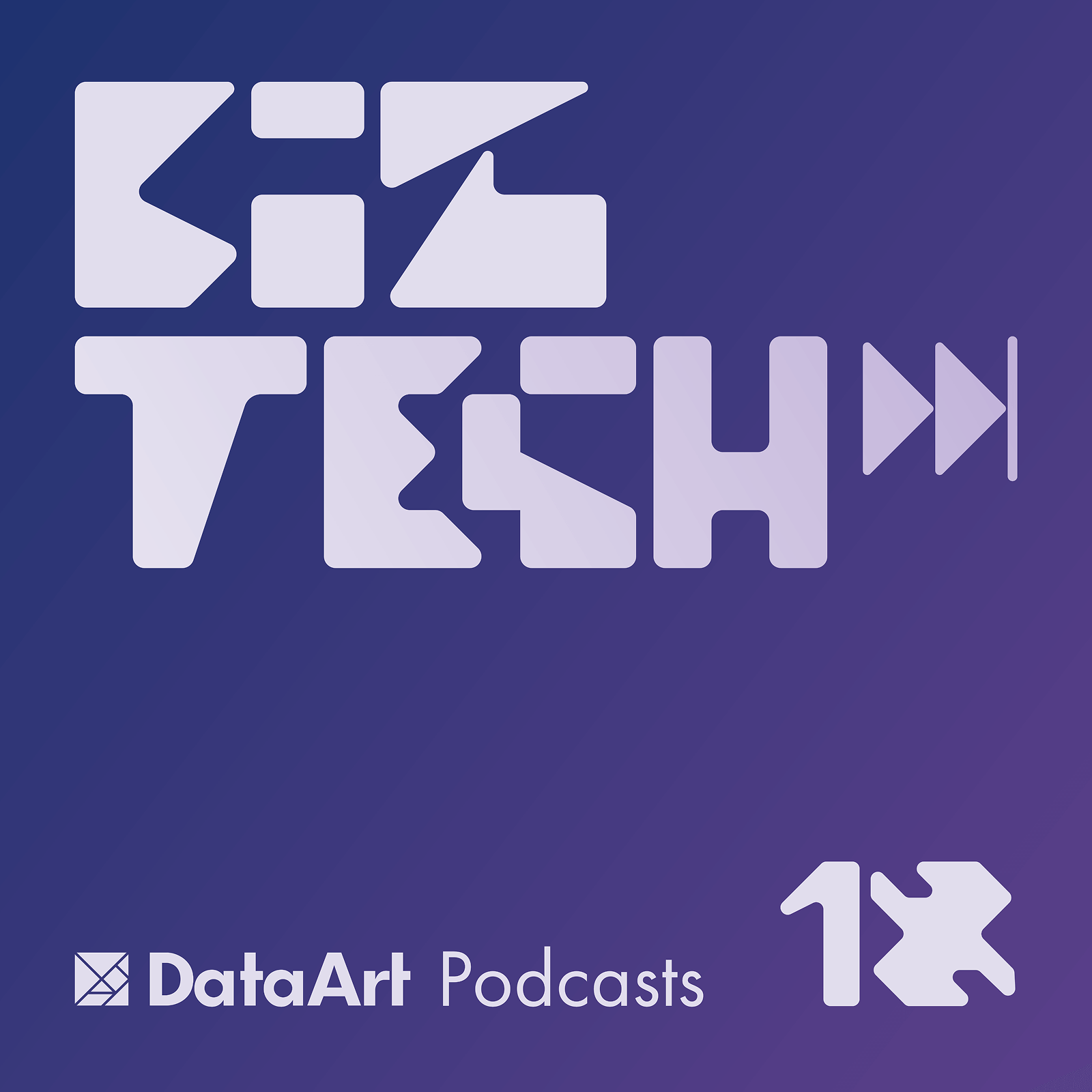
AI is supposed to be revolutionizing retail. Personalized recommendations, seamless checkout, virtual try-ons — the whole pitch. But if the technology is so good, why are physical stores still packed?
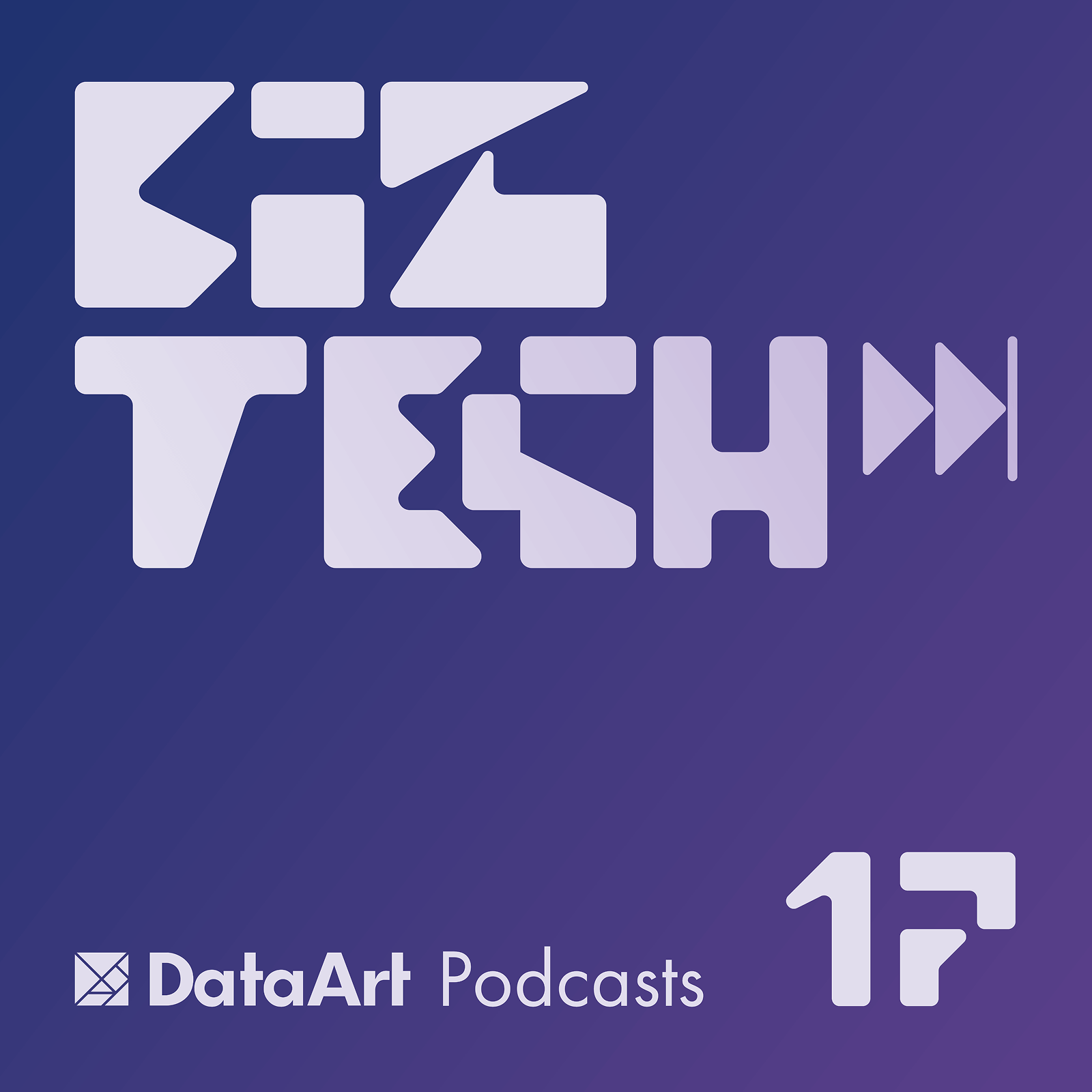
In this episode, Anni sits down with Alistair Wandesforde, SVP at DataArt, to see what companies say about their AI capabilities and what's really happening on the ground.

Season 2's most controversial moments! Eight tech leaders share their unpopular opinions on AI, recruitment, learning culture, market competition, and more.

We wrap up Season 2 with episodes 13-16! Featuring Doron Fagelson's fascinating look at how data is transforming art commerce, Greg Abbott's insights on the tech behind your next trip, Olesya Khokhulia on enterprise partnerships beyond just delivery, and Alexey Utkin's brutally honest conversation about data reality.

Join host Anni Tabagua for a Season 2 recap covering episodes 9-12! Featuring discussions on evolving client expectations, scaling learning culture, Latin America's tech boom, and the current state of tech talent.
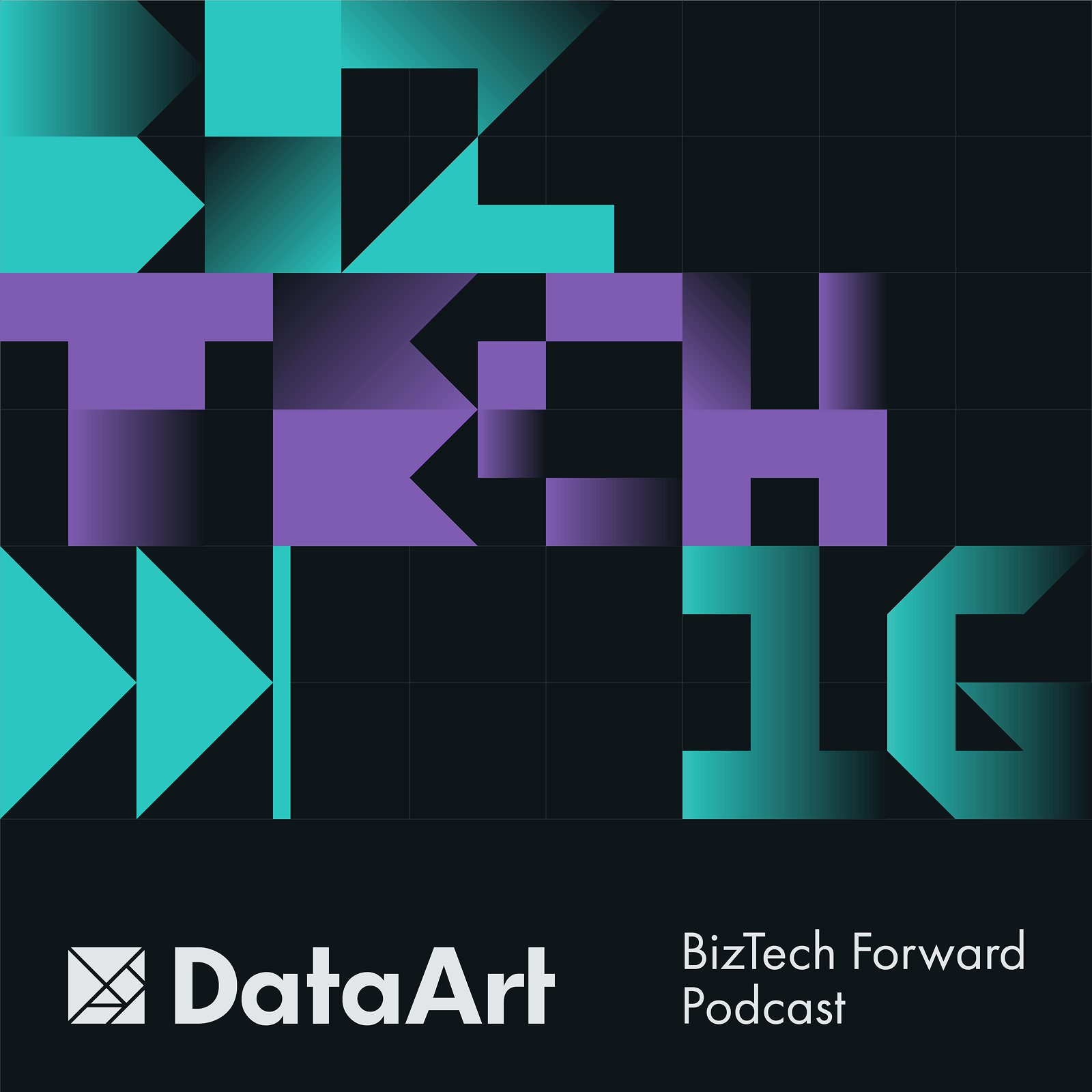
In this episode, Anni sits down with Alexey Utkin, Head of Data and Analytics Lab at DataArt, for a candid conversation about what’s really going on in the world of data.
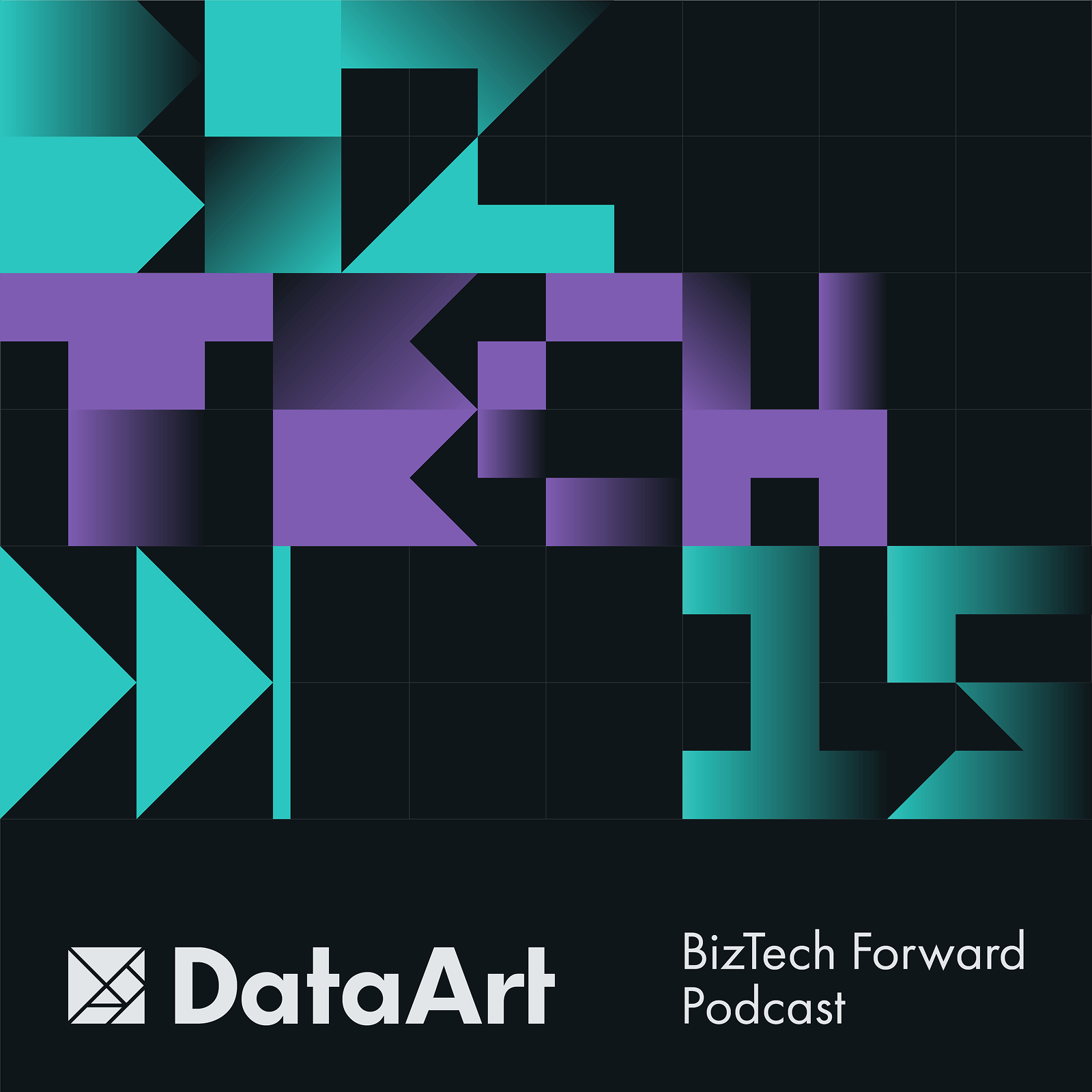
In this episode, Anni speaks with Olesya Khokhulia, VP of Global Enterprise Accounts at DataArt, about the evolution of client relationships, the quiet signals that build trust, and what it takes to stay relevant in an environment where expectations are always shifting.
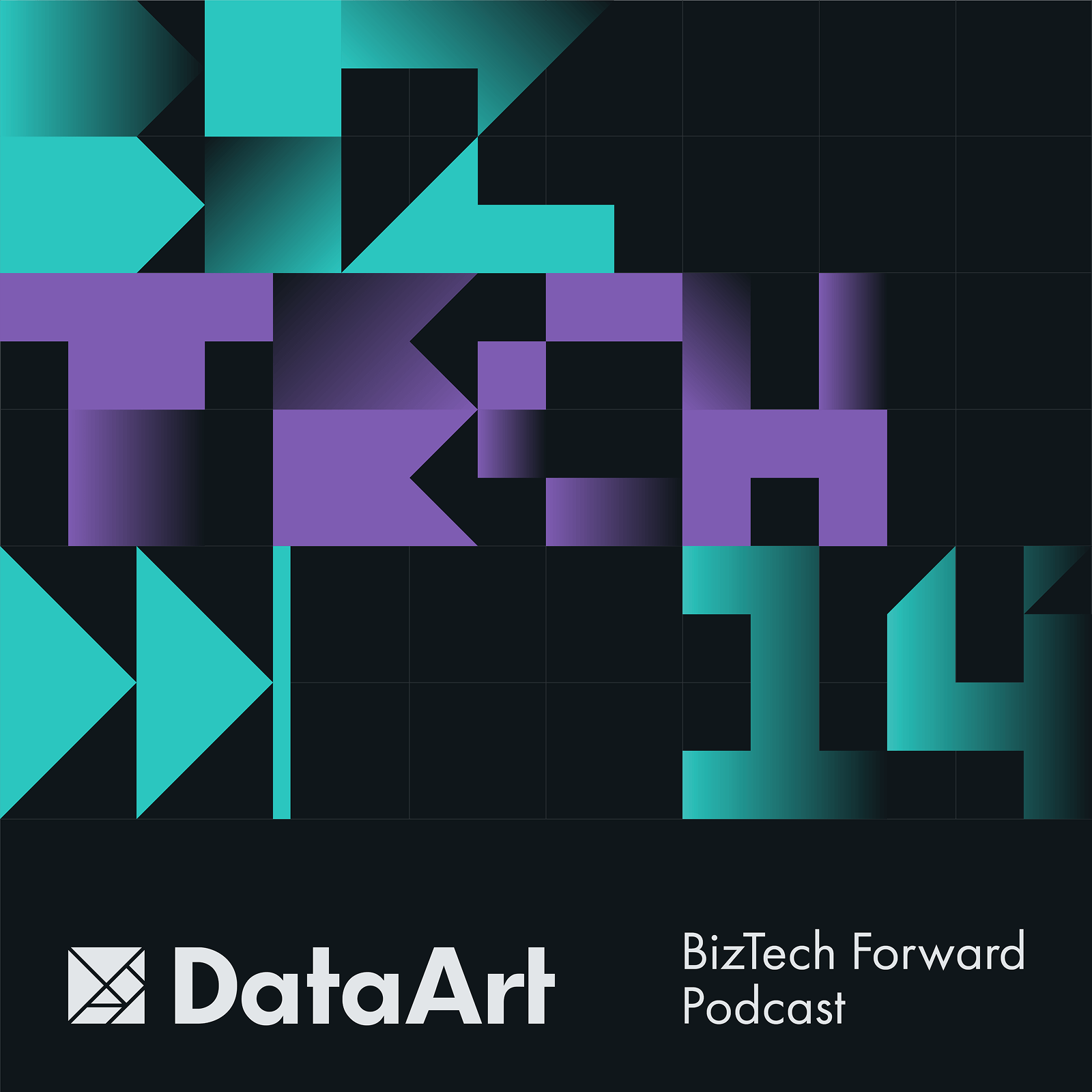
Travel is back — but it’s not the same. In this episode, we sit down with Greg Abbott, a veteran of the travel tech world with over three decades of experience, to talk about how the industry is evolving.

From ancient artifacts to AI-curated collections—art is evolving, and fast. In this episode, host Anni chats with Doron Fagelson, SVP of Media & Entertainment at DataArt, to explore how technology is transforming the art world, from online marketplaces to data-driven personalization and virtual galleries.

In this episode, host Anni chats with Julia Zavileyskaya, Chief People Officer at DataArt, about the biggest hiring trends, AI’s role in recruitment, and what really keeps employees engaged." Please find the episode's cover attached.
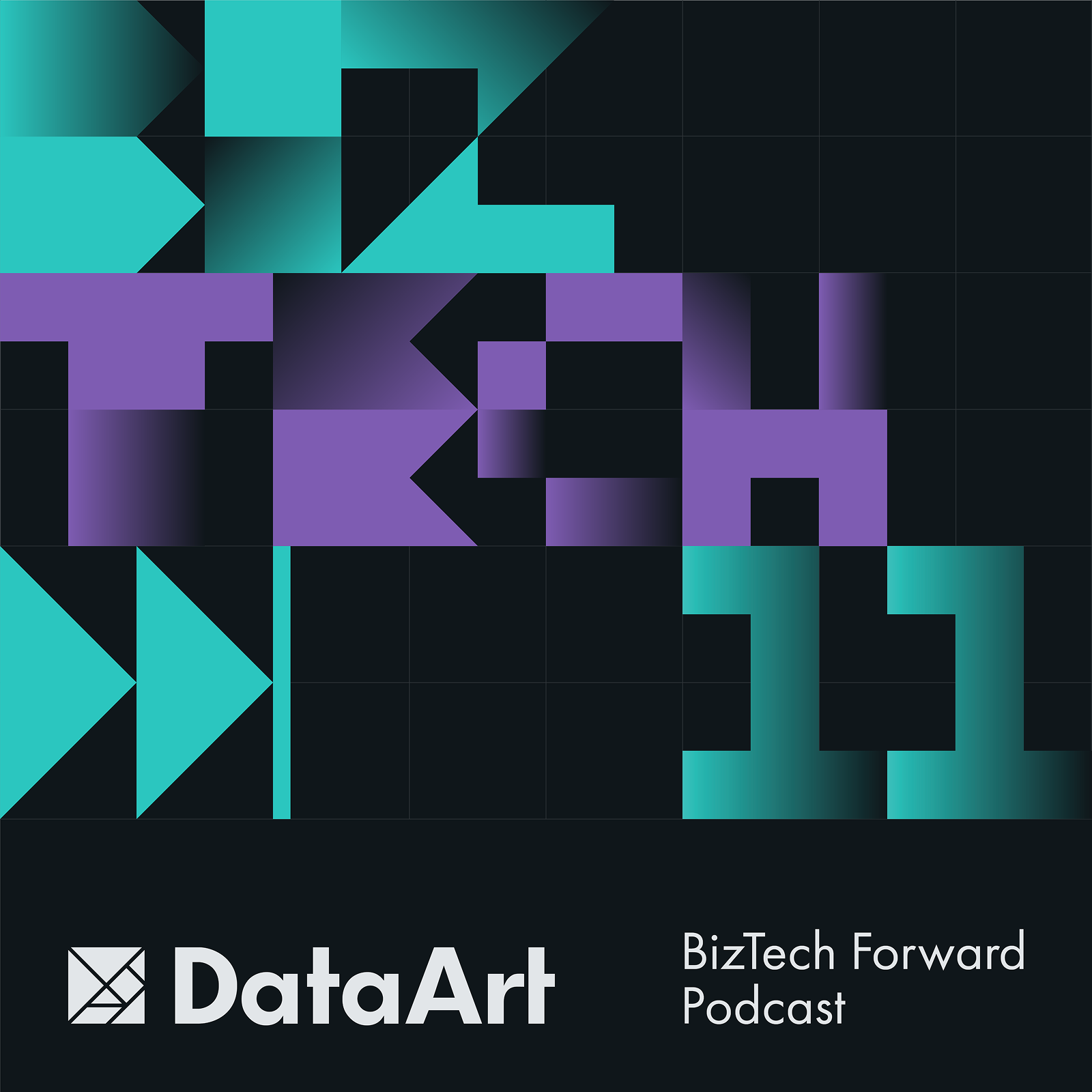
In this episode, Anni sits down with Marcos Mauro to discuss what’s fueling Latin America’s tech boom, how businesses and clients are adapting, and why it’s more than just an emerging market — it’s a global leader in the making.
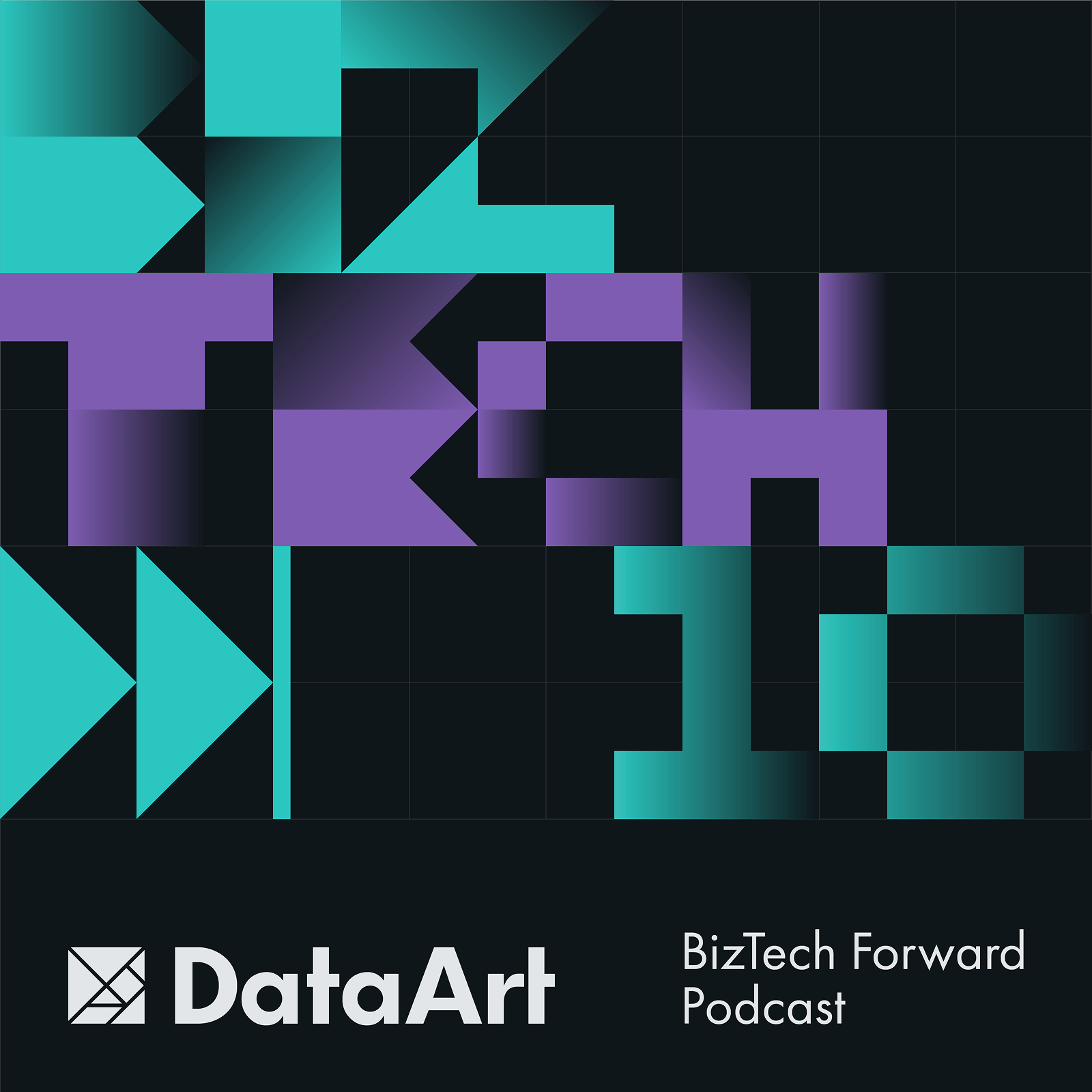
In this episode of BizTech Forward, Anni chats with Maryna Melnik, Head of Learning and Development at DataArt, about how companies can create a culture of continuous learning, scale it across thousands of people, and deliver real business value.
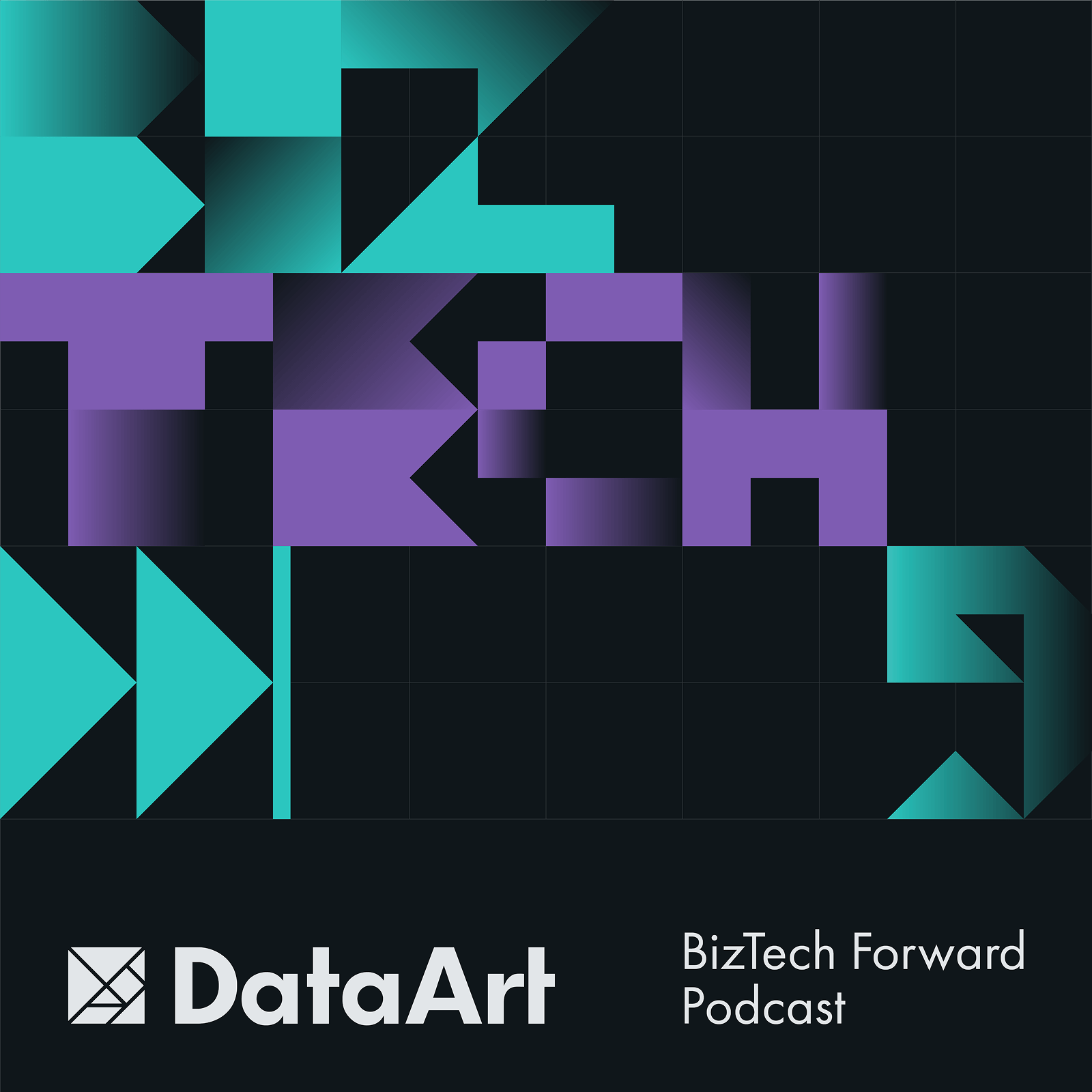
In this episode of BizTech Forward, Anni sits down with Mike Peterson, Advisory CTO / CIO, Mentor, and Coach, who discusses how client expectations from IT vendors have evolved over the past decade, what clients miss from the ‘old days,’ and how vendors can stay ahead in an ever-changing tech landscape.

This is a bonus episode of BizTech Forward: Season One Recap. Host Anni takes you through the eight episodes of the debut season, highlighting some of the best moments and setting the stage for season two!
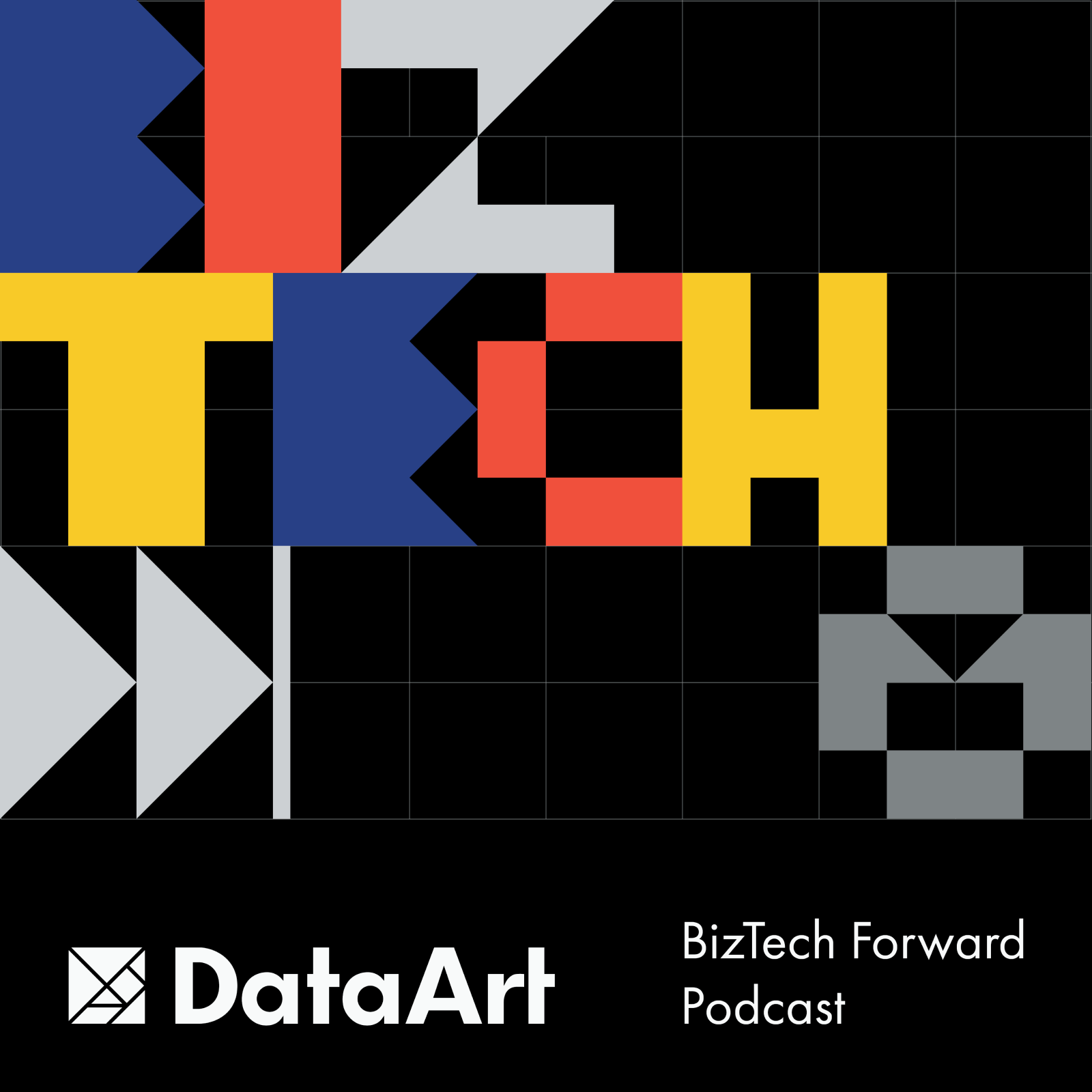
In this episode of BizTech Forward, Anni chats with Scott Rayburn, VP Marketing at DataArt, about how marketing has evolved with the rise of data and technology.
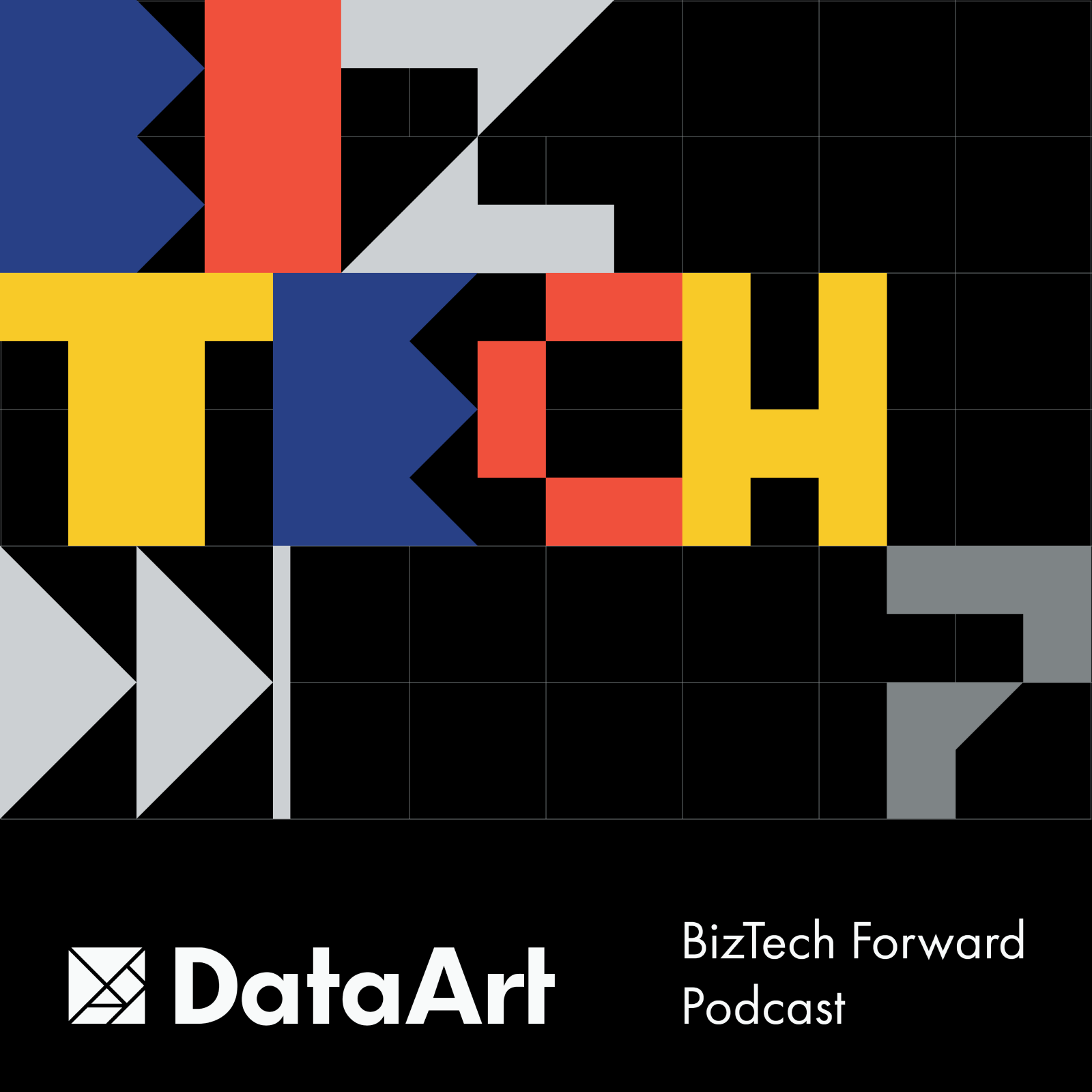
In this episode, Anni chats with Sheetal Kale, Head of DataArt India, about the country’s modern tech views, AI and data, IPO boom, and India’s gravitational pull in global decision-making.
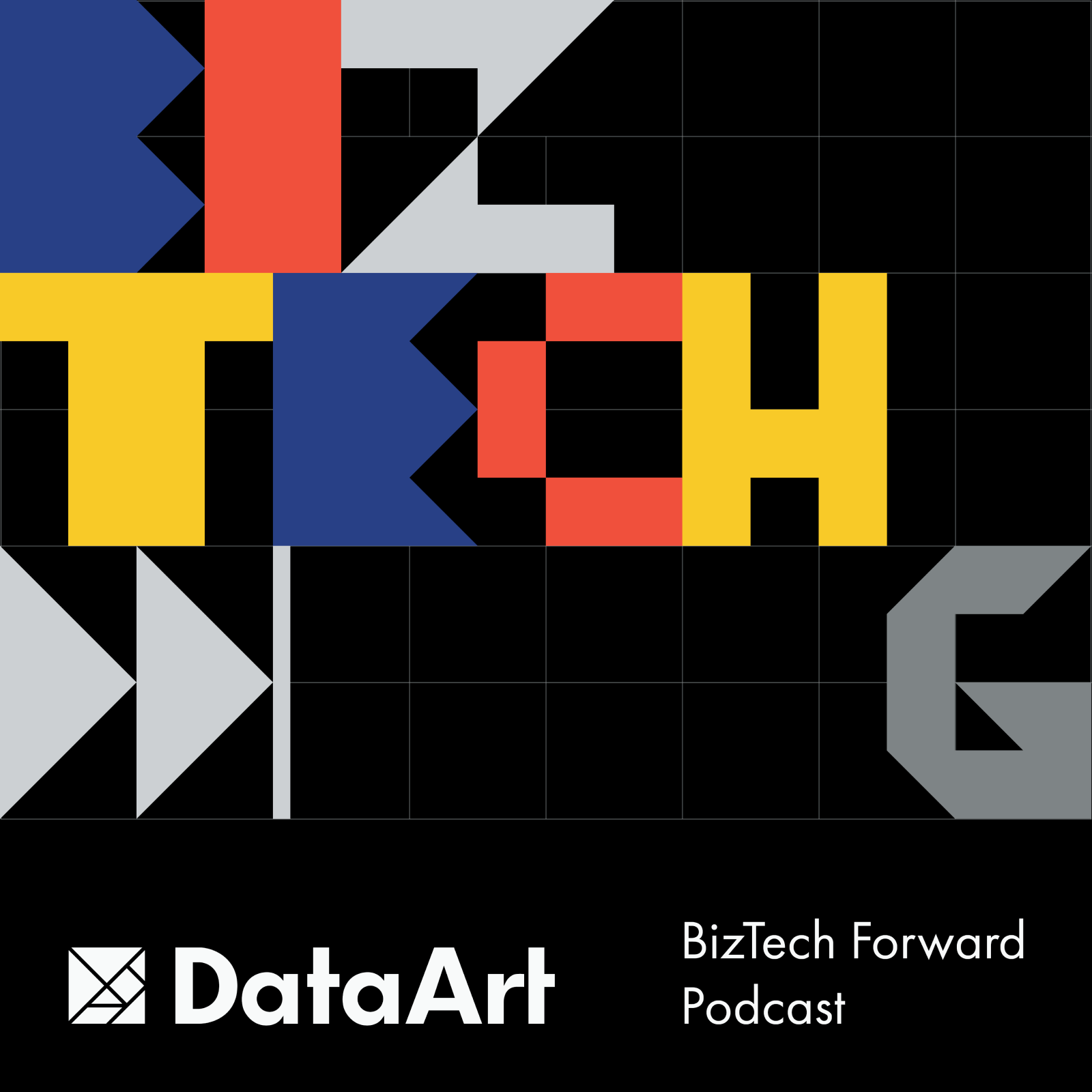
In this episode, we're joined by Tim McMullen, a true veteran in aviation tech, to discuss the latest aviation technology trends from the latest industry conferences and the future of aviation.
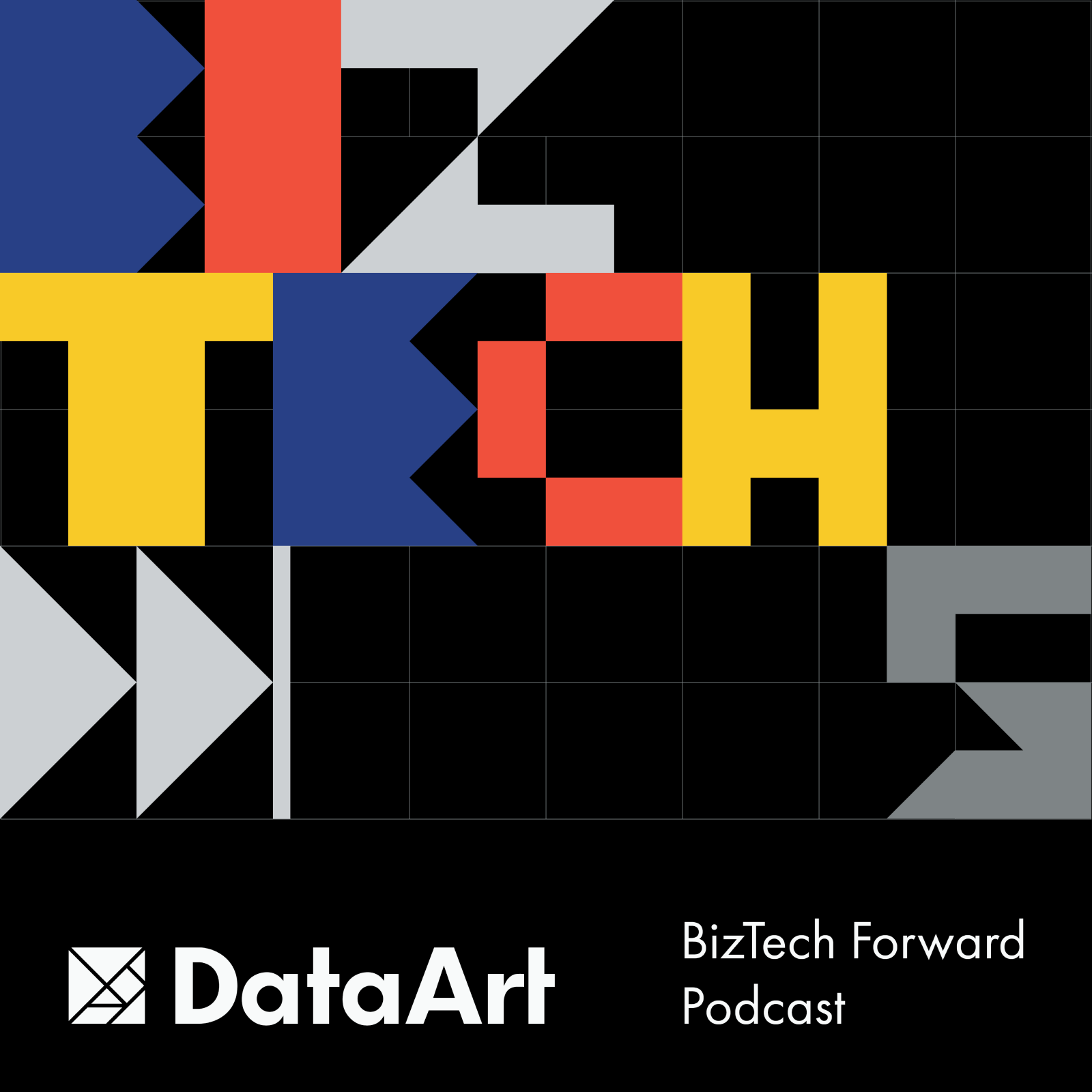
In this episode of BizTech Forward, Anni sits down with Anastasia Rezhepp, DataArt's Head of Design Studio, to talk about the evolution of design processes in the world of UX.
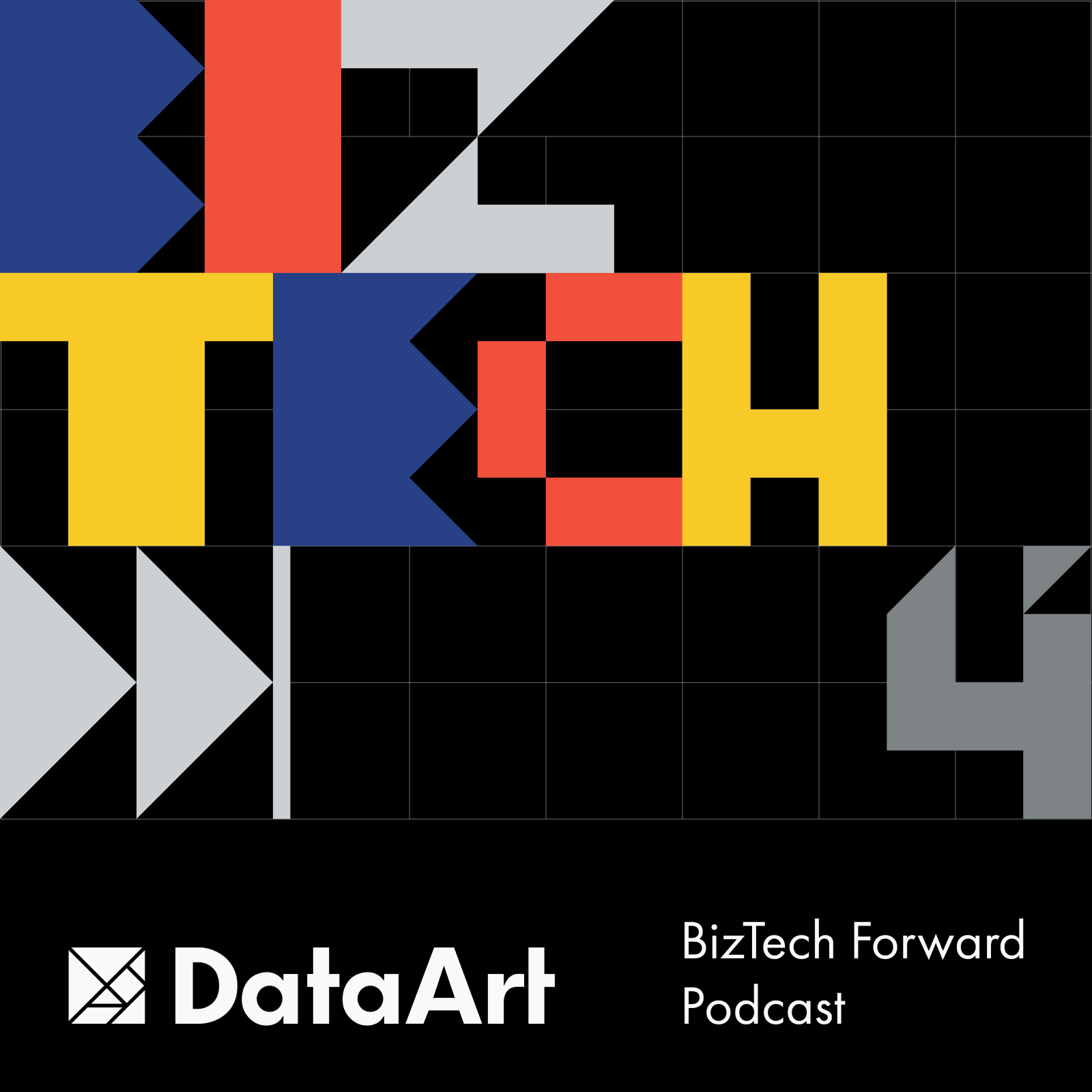
In this episode of BizTech Forward, we chat with Yuri Gubin, Chief Innovation Officer at DataArt, about why data quality is critical for AI success.

In this episode, we chat with Anna Velykoivanenko, Global Employer Branding Director at DataArt, about the perfect blend of technical know-how and human-centric skills.
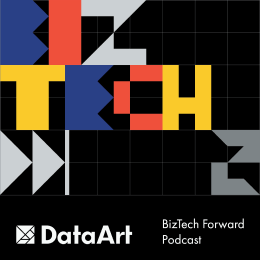
In this episode of BizTech Forward, Anni from DataArt’s Media Relations team chats with Alexei Miller, Managing Director at DataArt, about how businesses can truly measure the value of their IT investments.
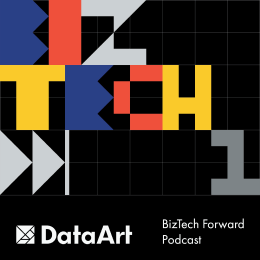
Join Anni Tabagua as we kick off our very first episode with a fascinating topic: AI in Automotive. Our guest is Dmitry Bagrov, the Managing Director of DataArt UK!
We Want to Hear From You!
Reach out to us with any comments, feedback, and questions by filling out the form.

Thank you for contacting us!
We will be in touch shortly to continue the conversation.








